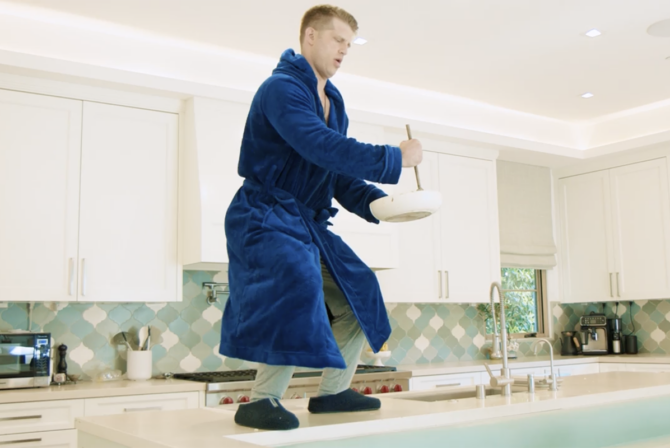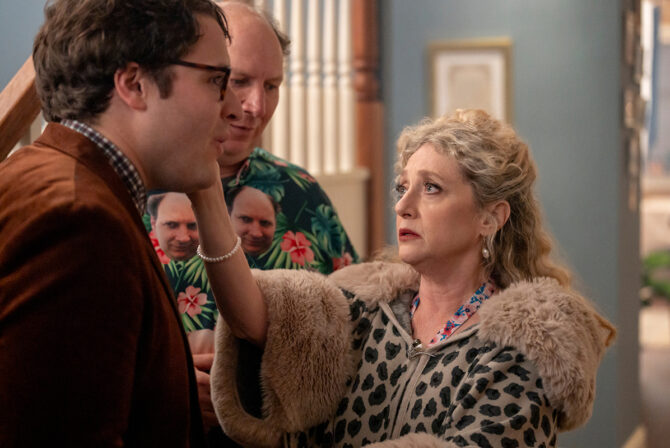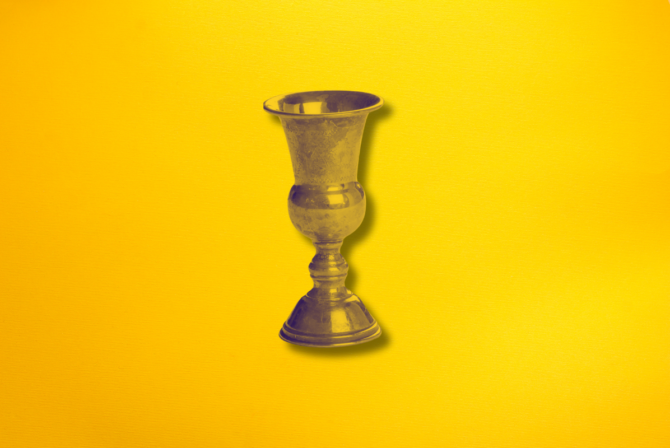All around us in our country these days, we see hatred and cruelty aimed at those who are most vulnerable. Sunday morning, in our city of Philadelphia, a man went to visit the grave of his father and found Mt. Carmel Jewish Cemetery desecrated, hundreds of headstones toppled to the ground, some split in two. My husband rushed to the scene with other rabbis. He met family members of the deceased, and Muslim and Christian neighbors who had come to witness, to pray, and to help.
My daughter, Zohar, and I headed over later in the afternoon. On the way we stopped at Dunkin Donuts to pick up hot chocolate for those who had been working all day in the cold to reset the stones. We met a Muslim father and his three young children, gathered around a high-top table, reading library books. While we waited for cartons of cocoa, the children shared their Pete the Cat book with Zohar. She was delighted. I told the father what had happened in the cemetery. He said, “If they will do that to the stones, imagine what they will do the people.” It is a scary time, we agreed. He told me how someone wrote something nasty about his 7-year-old daughter on the board in her classroom because she wears a hijab. We told each other that we will stand together, as Muslims, as Jews, and as parents.
When we arrived at the Mt. Carmel cemetery, darkness seeped through the sky. Seeing the stones knocked down and cracked, I cried. Huddled with others, we chanted the evening prayers, for love, connection, liberation and protection. Muslim and Christian neighbors stood beside us. I held my daughter close, bundled in a blanket and a hat, and she took it all in. She pointed to the stars in the sky. “Love is the only power,” I sang to her, whispering in her ear, wanting so badly to believe it.
When she was born two years ago, the community that gathered to welcome her sang those same words by David Zeller. ““Love is the only power. Love is the only way. Love, love, our love. Watch our circle grow.” Every night at bedtime we remind her of this, when we sing the words of Shema and Ve’ahavta. We promise her that she is loved and tell her that we are brought into this world to be a force of love. These days, especially since November, our toddler frequently joins my husband and me at marches and meetings. We want her to soak in the living Torah of sacred resistance. She finds the cookies and plays with tiny dolls on the floor, tucking them in for naps beneath loose-leaf blankets.
Before her birth, when I was a pregnant, congregational rabbi, I officiated many funerals while my daughter kicked in utero. Standing at a graveside, chanting the memorial prayer for those who had died, I was reminded by those kicks that she was on the way. The prayer we chanted, El Maleh Rachamim, God full of Mercy, is rooted in the Hebrew word for “womb.” We ask the God of wombs to shelter the souls of our beloved ones who have left this world. In Jewish tradition, the greatest act of chesed, of unconditional love, is to care for those who have died, those who can never repay the kindness. We do this by returning their bodies to the earth, and later, by erecting monuments, and placing stones with love. Each time I stood with community to do the sad and sacred work of burying someone, I prayed that my child, in her lifetime, would learn to give and receive love.
In the stories of the Torah, the well symbolizes love; a gathering place for community and a meeting site for lovers. In Genesis, we read a story about our patriarch Jacob, who arrives in a new town to find a well covered by a large stone and many thirsty animals milling around it. Jacob catches a glimpse of his beloved, Rachel, and he is filled with courage. The force of his love moves through him until, singlehandedly, he rolls the stone off the well.
At the cemetery on that dark afternoon this week, love was doing the heavy lifting. Love brought together neighbors to reset the monuments that had first been placed in love. Love showed up in the form of support, prayers and funds flowing in from around the country. In these dark times, may we have the courage to keep on loving, ourselves and our children, other people and their children, and all of those who have ever been told that we are not enough. May we love, without apology and without end, in words and also in action. It is the only way.







